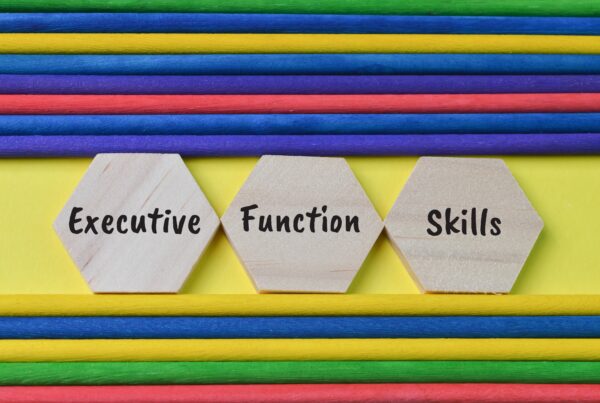As I discussed in part one of this blog series, ADHD and executive dysfunction can make studying really difficult for students, especially when study suggestions from teachers, parents, and friends just don’t work. It’s easy to feel bad about this struggle and to want to give up when nothing is working, but I’d like to remind students and parents that it’s not their faults – it takes time, effort, and teamwork to figure out what works for an individual.
This blog contains more study tips that I personally have found helpful as I navigated high school and college. Please remember that these tips may not work for everyone, or they may need to be modified for you. It’s important to remember that a tutor or coach who specializes in learning differences can help determine the best study methods for you specifically.
Tip 3: Note Copying
In the middle of class, I sometimes don’t pick up all the information the first time. This is especially true with lectures. If the teacher is going quickly, I end up stressing about writing everything down quickly, but then my notes end up messy, and I focus on that more than the material.
In high school, I developed a system: I would have one notebook per class, and then an “in-school” notebook. I would use my in-school notebook for note taking during class. This notebook would have my messy, in-class notes for all my classes. Every evening, I would go through that day’s notes and copy them into the correct notebook for each subject: I’d copy my math notes into my math notebook, history notes into the history notebook, etc. I would also copy any handouts or note packets from my classes into my subject notebooks.
This strategy helped me in many ways:
- It allowed me to read the information a second time and write it down. Writing it down helps with memorization. Combined with Study Tip #1 in part 1, this really helped me learn the material.
- While copying, I could take the time to write my notes as neatly as I wanted to, without being rushed by the speed of the lecture/class. Neat notes are important to me, so making the time to take neat notes helped me a lot.
- Copying my handouts and packets into my notebooks ensured that even if I lost the handout (which I often did), I’d have all the information consolidated in my notebooks.
- Having this daily task of copying notes became my main form of studying. I had trouble motivating myself to study, especially in high school. However, I got into the habit of copying notes every day, and sometimes that would lead to additional studying since I was already engaging with the material. Even when all I did was copy the notes, I was still working on the subject a lot more than I had been before I adopted this strategy.
Tip 4: Match the Stimulation Level I’m Feeling
Overstimulation and understimulation are both common with ADHD. Overstimulation can feel like “bees in your brain” or “head is too full,” and it can lead to irritability, anxiety, or a feeling of extreme overwhelming. Understimulation can feel like lack of motivation, hyperactivity, or impatience. This article includes good explanations of overstimulation vs. understimulation.
Stimulation includes visual, auditory, and physical stimulation, so overstimulation and understimulation can be affected by the things you’re seeing, the sounds you’re hearing, and all the other sensations you’re feeling. I’ve found it very important to regularly take inventory of my stimulation level and manage my stimulation appropriately, so that I can focus on studying.
For example, Some days I wear noise-canceling headphones playing white noise or sit in a quiet library while I study, and other days I play loud music or sit in a busy coffee shop. I sometimes enjoy busy areas with a lot of things to look at, and others I stay in a quiet room alone. Sometimes I enjoy fidgeting with a toy or hair tie, and others I wear my softest clothes and tuck my hands into my sleeves to avoid physical stimulation.
These things may seem unrelated to studying, but depending on the day, any of them could completely distract me from my work. So, it’s important to take inventory of how I’m feeling when I start studying, and make sure to do the things that will make me feel comfortable that day.
Closing Comments from the Author
I’m really looking forward to writing more of my study tips! If you have any questions or if you have other study tips that have worked well for you, feel free to email me at jamie@mindfish.com. I’m always happy to hear from students or their parents and swap strategies for academic success. Happy studying!
Other posts from Jamie’s study tips:
Study Tips from a Tutor with ADHD – Part 1
Test Prep for Students with ADHD and Students with Autism – Part 3
Interested in learning more about Test Prep at Mindfish?
Contact us today to find out what our dedicated tutors can help you achieve.





